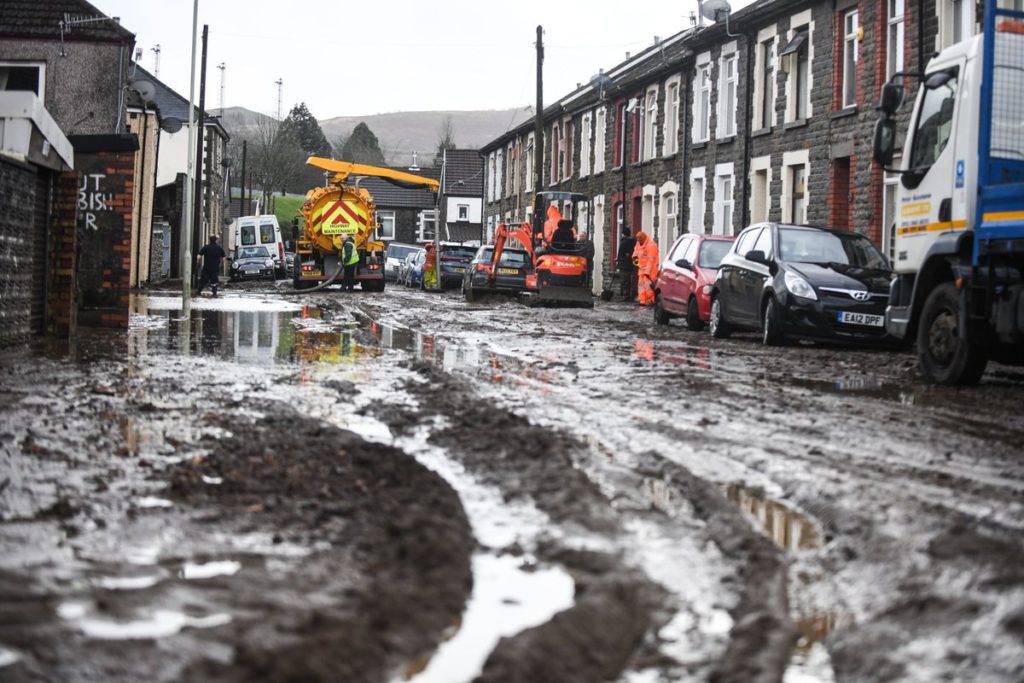Barry Builder shares essential building maintenance tips after bad weather & flooding for Wales

Barry builders, Precision Construction, who were named the Best Builders in Wales 2019, explain why property owners should do essential building checks and maintenance after the recent bout of bad weather
Seeing huge chunks of the Vale of Glamorgan, Cardiff and the Valleys underwater was heartbreaking to see – and as South Wales Builders, we really empathised with those affected, because sadly many will find they aren’t insured for flood damage and the repairs to a flooded building don’t come cheap.
For those whose homes were wrecked, structural home repairs won’t be optional, and will need to be done quickly – we’re here to help and happy to offer one on one advice and support as affordably as we can.
However, for those homes and businesses lucky enough to escape the flood damage, such an onslaught of rain in such a short time can still affect properties in other ways – and our advice is to undertake winter maintenance checks to make sure your property is fit to weather any future storms that may come this year.
Keep your windows and doors in good working order
Good quality triple glazed windows are a good investment for your property, usually lasting for years, but if you have had them closed all winter (and we wouldn’t blame you), dirty locks and hinges could possibly seize, so we recommend that after all the bad weather, you inspect each window, and clean and apply a little oil to all the moving parts, like hinges, locks etc. The same applies to your conservatory windows and doors, often only used in Summer and ignored all winter.
This will take minutes to do, but will vastly extend the life of your windows and doors.
It goes without saying, too, that if you have any old wooden doors and windows that got battered in the storms, get them repaired, repainted or replaced as soon as you can. If we have any more storms, (and indications are that we will), you need to protect you home and these are your first defence against inclement weather – definitely a defence you can’t afford to fail.
Check your gutters
After such a huge onslaught of rain, check your gutters, they play a vital part of your home’s defences. Look for any holes or cracks which could have occurred during the storms and replace them as soon as possible. A leaking gutter that lets water drip down your walls can create structural damage to your property.
It’s also important to make sure that gutters are free from leaves or dead animals that could have fallen in during the storms. A simple blockage could cause them to fail in the next storm.
Check and Maintain your Roof
Roof maintenance is essential after such windy conditions – catching problems early will give you a chance to repair any damage before further storms. Visually check your roof to see if any tiles have been dislodged and pop your head into the loft to see if any light is coming in. Make sure any air vents are clear and contact a roofer or builder if you notice damage and get any repairs done as soon as you can. Minor repairs are always cheaper than a whole new roof – and again, your roof is part of your home’s defence against inclement weather.
While looking at the roof, if you notice moss and ivy, get it removed, both can cause damage through moisture. Finally, if you have a chimney, check the flashing (metal strips that seal the chimney to the roof). If you spot any gaps or slippage, call a professional to repair or replace them as soon as you can.
Inspect your drains
It’s also worth inspecting any drains on your property – the floods and bad weather could have washed potential blockages into the system – they need to be free flowing to allow flood water to drain, and many Welsh councils were able to prevent floods in less vulnerable areas simply by clearing culverts and making sure excess water could flow freely into the drainage system.
With the storms bringing an unprecedented volume of water we had in such a short space of time, in this case the overwhelmed water system in more vulnerable areas simply couldn’t cope despite best local efforts, but that’s not always the case. Sometimes localised floods can be created by a drain blockage that could easily have been avoided by keeping your drains clear.
Look for potential hazards around your property
Finally, look around the property for any hazards that could present a threat – for example, are there are any overhanging trees with branches which could damage windows, roof tiles or even people underneath them in a storm? Are your fences intact? Take note of any work that can be done now, because you don’t know when the next storms will come.
Our hearts go out to everyone affected by last week’s storms – but a little preventative work can help those fortunate enough to be outside the flood zone from experiencing similar damage. It goes without saying that we’ll be happy to give one on one building advice where we can.